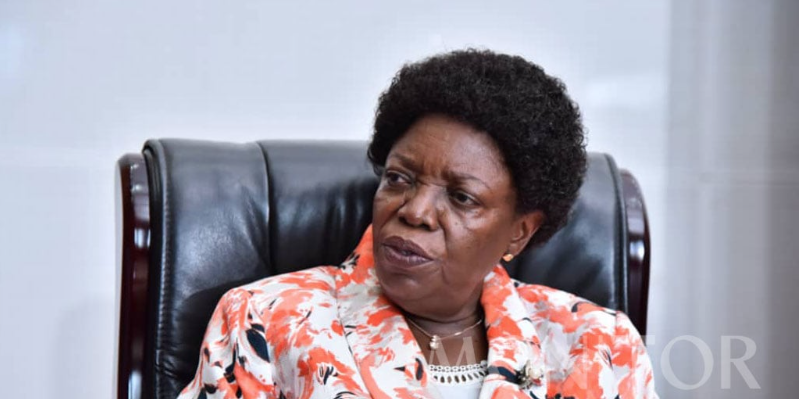Prime
Expired courses: Varsity heads challenge accreditation laws

Prof Mary Okwakol, executive director of National Council for Higher Education. PHOTO | FILE
What you need to know:
- The vice chancellors suggested that the re-assessment of degree programmes be transferred from NCHE to the universities.
University vice chancellors meeting in Kampala have proposed that academic programmes being taught at their institutions should not be labelled as expired even after their accreditation has lapsed.
Yesterday’s meeting at Makerere University was the first of a series of similar engagements scheduled in the frantic search for answers to the crisis caused by the expired degree programmes’ scandal.
It was, however, not immediately clear whether the university heads will now push for a change in the current law which only permits the teaching of accredited programmes --- and whether that alteration would apply retrospectively.
Such a revision would likely require an amendment of the Universities and Other Tertiary Institutions Act by Parliament since laws in Uganda are not ordinarily known to be alterable by proclamation.
The University and Other Tertiary Institutions Act stipulates in Section 119(a) that: “ For the avoidance of doubt, no person shall operate a university, other degree awarding institution or a tertiary institution without the prior accreditation of its academic and professional programmes by the National Council for Higher Education (NCHE)”.
It is partly under this legal provision that the NCHE governing council in 2008 approved guidelines requiring institutions to submit programmes for re-assessment/accreditation every five years for bachelors and masters degrees, and every 10 years for doctoral programmes.
Council executive director, Prof Mary Okwakol re-affirmed last week that re-assessment is a best practice measure established to ensure quality, competence of institutions to teach a given programme, and their relevance.
It is now almost two weeks since higher education in the country was plunged into shock by unsettling revelations that more than 2,000 degree programmes are not accredited, and have been labelled as expired by the NCHE.
Thousands of current and former university students who either enrolled for, or have graduated from, the affected programmes now face the painful reality that their qualifications are not recognised in certain jurisdictions outside Uganda.
Some graduates, seeking to pursue further studies abroad, have already suffered the indignity of rejection by universities in the United Kingdom and US, which consider their degrees invalid.
Yesterday’s suggestion not to expire degree programmes was one of several discussed by the Uganda Vice Chancellors Forum. The proposal will reportedly be presented at a Thursday, June 1 joint meeting between the NCHE and vice chancellors.
Forum chair, Prof George Ladaah Openjuru told a media briefing that they took the view that programmes accredited by the NCHE do not expire, an opinion which, however, appears to fly in the face of the law.
“The programmes that have been accredited remain accredited. They don’t expire because if you use the word expire, it’s like [referring to] expired drugs. People with qualifications out there will be misunderstood. Some of us who studied long ago would have expired,” Prof Openjuru said.
Ms Halima Wakabi Akbar, the academic registrar at the Islamic University in Uganda, similarly echoed the council’s recent declarations that all affected degrees are valid.
“The NCHE clarified that all the programmes that were accredited before are still valid. This means that all the programmes we are offering at our institutions are valid,” Ms Wakabi said.
Separately, Daily Monitor heard from other varsity heads who claimed that the law is silent on the question of expiry of accredited programmes.
They also suggested that the 2008 guidelines be reviewed to transfer degree programme re-assessment away from NCHE.
Kampala International University vice chancellor, Prof. Mouhamed Mpezamihigo said that once the NCHE accredits a programme, the mandate to keep it up to date should, ideally, be the role of respective universities.
These suggestions revolved around the idea that ‘experts’ in various quality assurance departments at individual universities would be assigned the oversight function of reviewing degree programmes.
Last week, Prof Okwakol told Daily Monitor said that they plan to replace the word expired with a more acceptable term to label programmes whose period of accreditation will have ran out.
She, however, said a decision on the extension of programme duration from five to 10 years as is being proposed by some heads of institutions will be discussed in the Thursday meeting.




